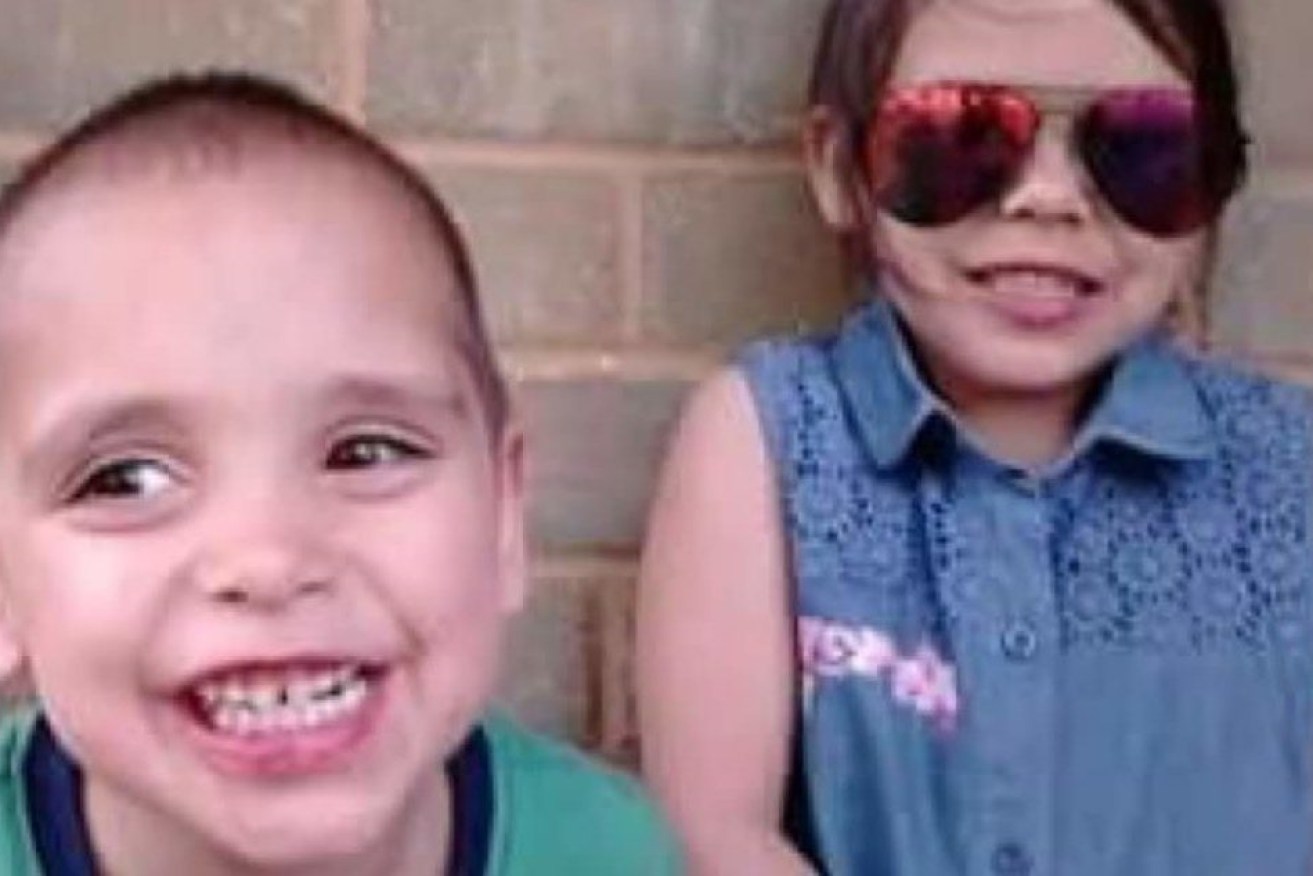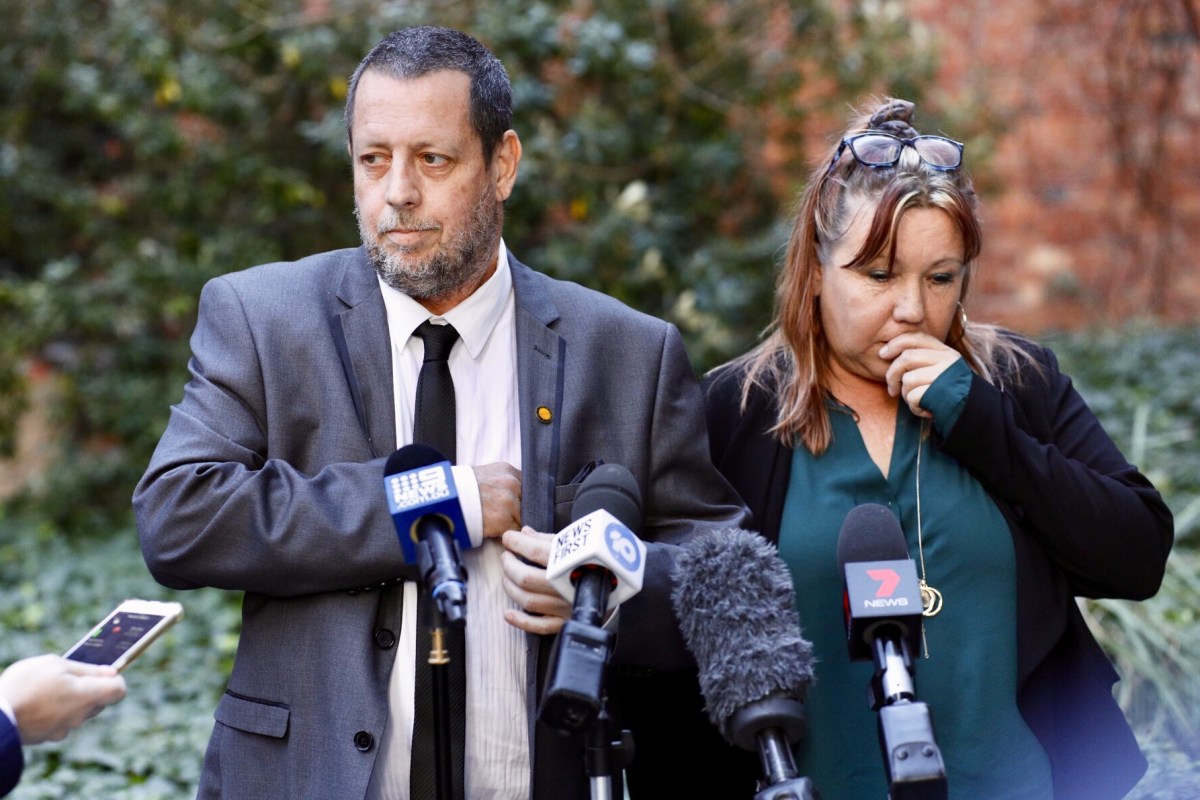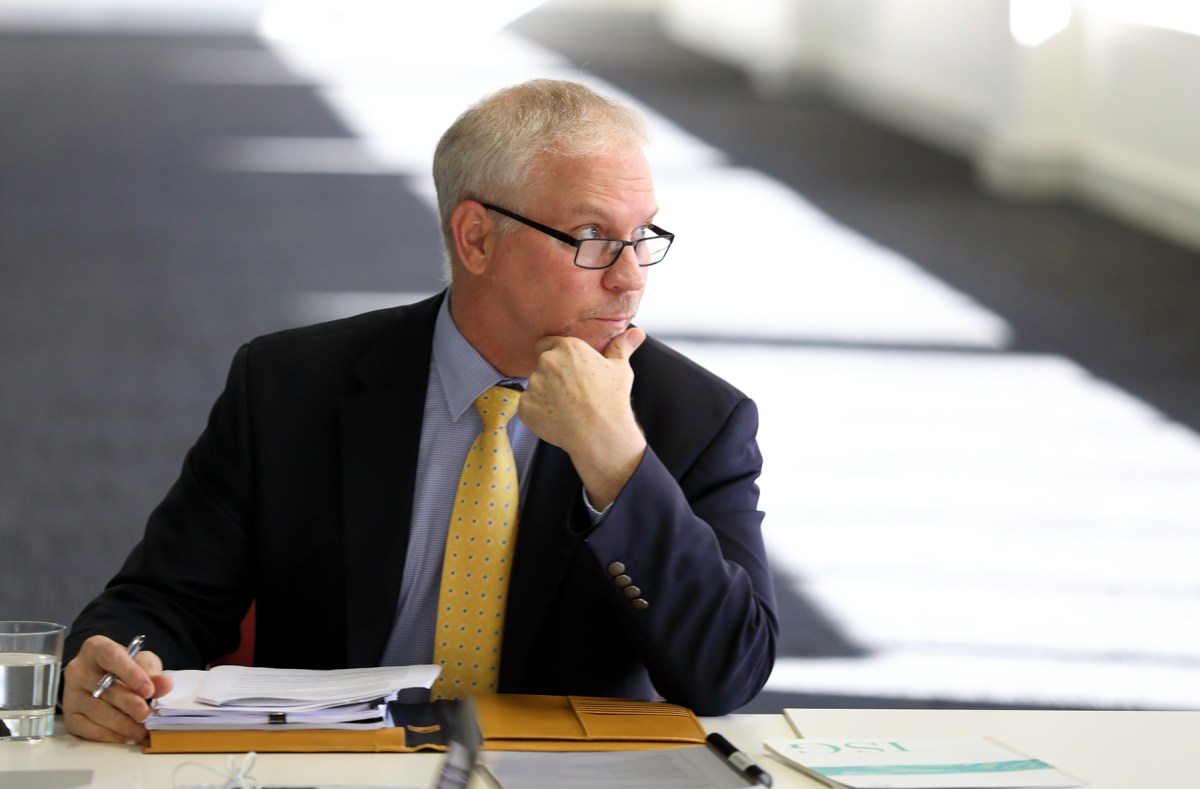Murdered SA children: “The agency responsible for their safety elected to do nothing”
The state’s child protection agency has again been savaged for systemic failures, with a long-awaited Ombudsman’s report into the case of two siblings murdered with their mother at Hillier in 2016 laying bare departmental “inertia, complacency and misplaced priorities” that saw authorities “do nothing” to protect the children despite serious warnings about their welfare.

Korey and Amber were murdered with their mother Adeline Yvette Wilson-Rigney in 2016 by Steven Peet.
Adeline Yvette Wilson-Rigney, 28, and her children, Amber Rose Rigney, 6 and Korey Lee Mitchell, 5, were murdered at Hillier in May 2016 by the mother’s partner Steven Graham Peet, 30.
Peet is serving a mandatory life sentence with a non-parole period of 30 years, and the case is still to be investigated by a coronial inquiry.
In June last year, Ombudsman Wayne Lines launched his own inquiry into the handling of the children’s cases by the former Families SA – now called the Department of Child Protection, after a restructure prompted by repeated scandals.
The Ombudsman’s inquiry was prompted by a complaint from the murdered children’s paternal grandfather Steven Egberts and his partner Janet Wells, whom Lines describes as “well-meaning individuals [who] acted as the laws said they should, and then largely saw their concerns fall on deaf ears” from child protection authorities.
“The agency that was primarily responsible for ensuring the safety and welfare of the children, out of inertia or complacency or misplaced priorities, elected to do nothing rather than something [and] those remaining have lost all faith in the system that was set up to protect them,” he found.
Lines today unveiled his findings at a media lock-up – the first he has held in his time in the role – telling reporters “the complainants are left wondering if a great tragedy could have been avoided”.

Steven Egberts and Janet Wells address media today. Photo: Tony Lewis / InDaily
Egberts told reporters at a separate media conference: “We’ve waited three long years for Amber and Korey’s voices to be heard – and we pray that their voices will now be deafening, and ringing in the ears of everyone who has an interest in child protection.”
He decried the “cavalier and callous actions of the department to our beloved grandchildren”, accusing the agency of “deception” in its dealings with the family.
He said the family had been “horribly, horribly” let down, “and I’m glad the truth has come out”.
“It appears to us they’ve spent more time avoiding their responsibility and liability, rather than protecting Amber and Korey, and Adeline,” he said.
“People expect when you go to Child Protection, action will be taken… that wasn’t the case here. In fact, nothing was done.
“As hard as it is, I’ve got no doubt that Amber and Korey would be alive today if we were given any of this information.”
The Ombudsman has recommended legislative changes “to make it absolutely clear to practitioners in this area exactly what their obligations are” around the sharing of information with concerned relatives.
“I’ll be calling on the Premier to exercise leadership on this issue,” he said.
Attorney-General Vickie Chapman pledged to do just that, telling reporters: “That we will do, and we’ll get on with it forthwith.”
But despite welcoming the report’s publication, Egberts was sceptical that legislative change would make much difference.
“We always hope, but we don’t hold a lot of faith,” he said.
“There were more than enough laws to protect Amber and Korey… it’s a waste of time to change laws if you’re not going to pay any attention to them.”
At the time of the murders, Egberts and Wells were caring for Wilson-Rigney’s eldest son, who is now 11, and whose existence was previously covered by a court suppression order.
He is referred to in the Report as ‘Child C’, while Amber is referred to as ‘Child A’ and Korey as ‘Child B’.
No reasonable person could have concluded the children were not at risk in the information that was available to the agency at that time
Lines found that following a serious notification to Families SA in 2014, the agency received 11 further notifications about the younger children’s welfare – and investigated just one, only weeks before their deaths.
“As I perceive it, of the 11 notifications that were made in respect of the children since November 2014… six were incorrectly screened out, five were assessed as meriting a child protection response, of which four were then not investigated at all, in apparent contravention of… the Children’s Protection Act,” he wrote in his report.
“No reasonable person could have concluded that [Amber and Korey] were not at risk in the information that was available to the agency at that time…
“Had the agency properly availed itself of those opportunities, there may very well have been cause and means to share information with the grandparents.”
The report details that Families SA received its first notification concerning the welfare of the eldest child in August 2008 – before Amber and Korey were born – and continued to receive them until the time of the younger children’s murders in May 2016.
“Those notifications primarily concerned allegations of substance abuse, excessive physical discipline and neglect within the mother’s home,” the report states.
“It does not appear that Families SA ever received a notification raising concerns about Mr Peet’s involvement with the family.”
However, he said the notifications concerning the behaviour of the children’s mother suggested [Amber and Korey] were at serious risk of harm while they remained in [her] care”.

A social media photograph of Wilson-Rigney.
“There was nothing in the notifications to suggest that the situation was likely to improve absent intervention,” he writes.
“To the contrary, the progression of notifications throughout late 2015 and early 2016 suggested that the family’s situation was steadily deteriorating.”
Lines details his belief that the department’s actions in failing to communicate with Egberts and Wells about the children’s welfare was “simply ‘wrong’”.
“The term ‘wrong’ is not defined in the Ombudsman Act… it does not appear to be intended to reflect any particular legal doctrine,” he writes.
“It is a term that should be afforded its ordinary meaning.
At a basic level, he writes, “an administrative act may be described as ‘wrong’ if it is likely to offend a reasonable person’s sense of what is right”.
“It is chiefly in this sense that I consider the agency’s omission to communicate with Steven and Janet in respect to the notifications concerning [Amber and Korey] was wrong,” he concludes.
“It was wrong because it prioritised considerations of privacy and confidentiality over the safety and wellbeing of the children.
‘It was wrong because well-meaning individuals… acted as the laws said they should, and then largely saw their concerns fall on deaf ears.
“And because the agency that was primarily responsible for ensuring the safety and welfare of the children, out of inertia or complacency or misplaced priorities, elected to do nothing rather than something.”
It was wrong, he said, “because [the children] are gone and those remaining have lost all faith in the system that was set up to protect them”.
However, “it was also wrong “within the meaning of… the Ombudsman Act”.
Lines recommends that cabinet-endorsed guidelines around the sharing of information of “vital information” with extended family should be incorporated into law.
“I suspect that until that is done, practitioners will be reluctant to share information, even if authorised under the guidelines… for fear of contravening legislative confidentiality provisions,” his report notes.
“My concern is that this fact will not be readily apparent to agency practitioners and I remain of the view that a clear legislative position consistent with the Information Sharing Guidelines is warranted.”
Chapman, who called the document “a damning report”, said that notwithstanding current legislation “there is clearly some confusion as to the application of the guidelines”.
“The Ombudsman makes it abundantly clear that it’s necessary to introduce the guideline obligations into legislation,” she said.
“From our perspective, it’s imperative we act immediately.”
In a statement, Child Protection chief Cathy Taylor described the three deaths as “a great tragedy and we acknowledge the heartache and anger felt by the families involved”.
“Tragic events like this give us pause to reflect on how we, as a department, respond to certain situations and how we must constantly adapt our practice to best support vulnerable families and children,” she said.
“While the person who perpetrated this horrific act was not the subject of concerns raised with the department, the family was known and we accept more could have been done to keep the children safe.”
She said the department had subsequently “worked hard” to introduce separate recommendations of the Nyland Royal Commission – including implementing a new Children and Young People (Safety) Act.
“This has resulted in an increased focus on family-led decision-making, greater engagement with the Family Court, and establishing clinical governance structures and systems aimed at improving child safety, risk management and quality practice improvement,” she said.
She said providing feedback to notifiers, a recommendation of the commission with which the department agreed in principle, “is currently under consideration”, while “the closure of intakes due to lack of resources is being phased out through the use of new provisions under the child safety laws, allowing child protection matters to be referred to other appropriate state authorities”.
“We welcome the Ombudsman’s investigation, accept the recommendations and will implement actions as determined by the State Government in response to this very important report,” she said.
That’s despite Taylor telling the inquiry during its investigation that disclosures to family “must only be made where absolutely necessary, and substantial caution must be exercised when deciding what personal information about children and primary caregivers can be provided, and to whom”.
“Contacting interested family or kin regarding the recent notifications does not routinely occur as it would not be consistent with good practice,” she told the investigation.
However, Lines took a different view, observing: “If ever there was a case for disclosure by the agency to an alternate caregiver, this was surely it.”
Lines emphasised that his focus was not on the events leading to the murders, but on the department’s systemic failure of information-sharing.
His report’s 72 pages document a litany of notifications about the children’s welfare.
These included an initial 2008 notification from Child C’s father, who “expressed concerns about [the child’s] safety” after he “attended the mother’s house to pick up [the child]”.
“The mother was intoxicated. Other persons at the house attacked the father [who] was prevented from removing Child C from the property,” the notification detailed.
Among the final notifications in 2016 were a warning that Amber, Korey and their mother “have been rendered homeless [and] spent the previous night in a tent”.
Wilson-Rigney elected to spend the night in a tent despite Housing SA funding the family to spend the night in a motel.
In May, that year Families SA was notified via the Child Abuse Report Line that “the mother is using ice daily, has a history of cannabis use and is dealing drugs herself”.
“The informant believes the mother is ‘in a bad way’ and is ‘on the stuff again’, meaning the drug ice”, the notification detailed.
“The informant holds concerns for the children due to the mother’s heavy use of ice and erratic behaviour.”
Lines noted that many if the notifications were “screened out” by the agency on the basis that the threshold under the Children’s Protection Act had not been met, arguing instead:“Those notifications should never have been screened out. I simply cannot understand why they were.”
“How is it possible that the notifications concerning [Amber and Korey’s] school attendance did not give rise to a reasonable suspicion… that [Amber] had been persistently absent from school without satisfactory explanation?” he writes.
“This is to say nothing of the cumulative effect of the notifications that were made in late 2015 and early 2016… a clear picture of disarray, substance abuse and neglect within the mother’s household.”
Three further notifications – involving the alleged assault on the children’s father in August 2008 and that Wilson-Rigney was using ice and prioritising her drug habit “over the immediate needs of her children” – were “screened in by the agency and then closed without further action”.

Ombudsman Wayne Lines delivering his report today. Photo: Tony Lewis/InDaily
Lines noted the agency also appeared to have taken no action to investigate an October 2015 notification in which a school parent raised concerns that Wilson-Rigney regularly “dumped” Amber with him, despite the fact “he has only known the mother for a couple of months”.
On one occasion the informant told the department he had been caring for the girl for two days “so that [Wilson-Rigney] could meet her drug dealer”.
“The mother’s whereabouts are unknown and she is not contactable by phone,” the notification detailed, while Amber’s school “holds concerns about the consistency of her care”.
The notifications escalated after a November 2014 notification by Janet – much of the detail of which is redacted in the Ombudsman’s report due to a suppression – after which it was mutually agreed that “Child C would remain in the grandparents’ care until he felt comfortable with returning to the mother’s home”.
“Child C is fearful of the mother… he wishes to continue attending school but is fearful that the mother will collect him,” the department was informed.
Lines wrote in his report: “I do not understand why the agency did not proceed to assess the safety of Child A and Child B in light of the November 2014 notification.”
“If the agency was truly satisfied that the mother had physically abused Child C, [Amber and Korey] were, by definition likely also at risk.”
The 2014 incident “eventually led to the commencement of family law proceedings concerning the welfare of the three children”.,
Lines’ investigation “established that Families SA did not inform the grandparents of its decision to take no action in respect of that notification and declined other opportunities to meaningfully intervene in the family law proceedings”.
“Partly owing to the lack of a prompt and robust child protection response to the notification made by the grandparents, the family situation then proceeded to ‘spiral out of control’,” Lines notes.
The agency’s sole investigation commenced less than three weeks before the children and their mother were murdered.
“Families SA neglected or ignored a succession of opportunities to meaningfully assess the risk to which the children were being exposed,” the Ombudsman found, noting that the formal Information Sharing Guidelines for Promoting Safety and Wellbeing “would have provided a sufficient basis for the sharing of information with the grandparents [but] Families SA had “limited its implementation of this instrument”.
Instead, it “prioritised considerations of privacy and confidentiality over the safety and wellbeing of children”.
“It is nonsensical to interpret the agency’s duty of confidentiality to preclude the sharing of information with a child’s extended family where necessary to protect the child from serious harm,” Lines found.
“The paramount consideration of the child’s best interests must prevail.”




